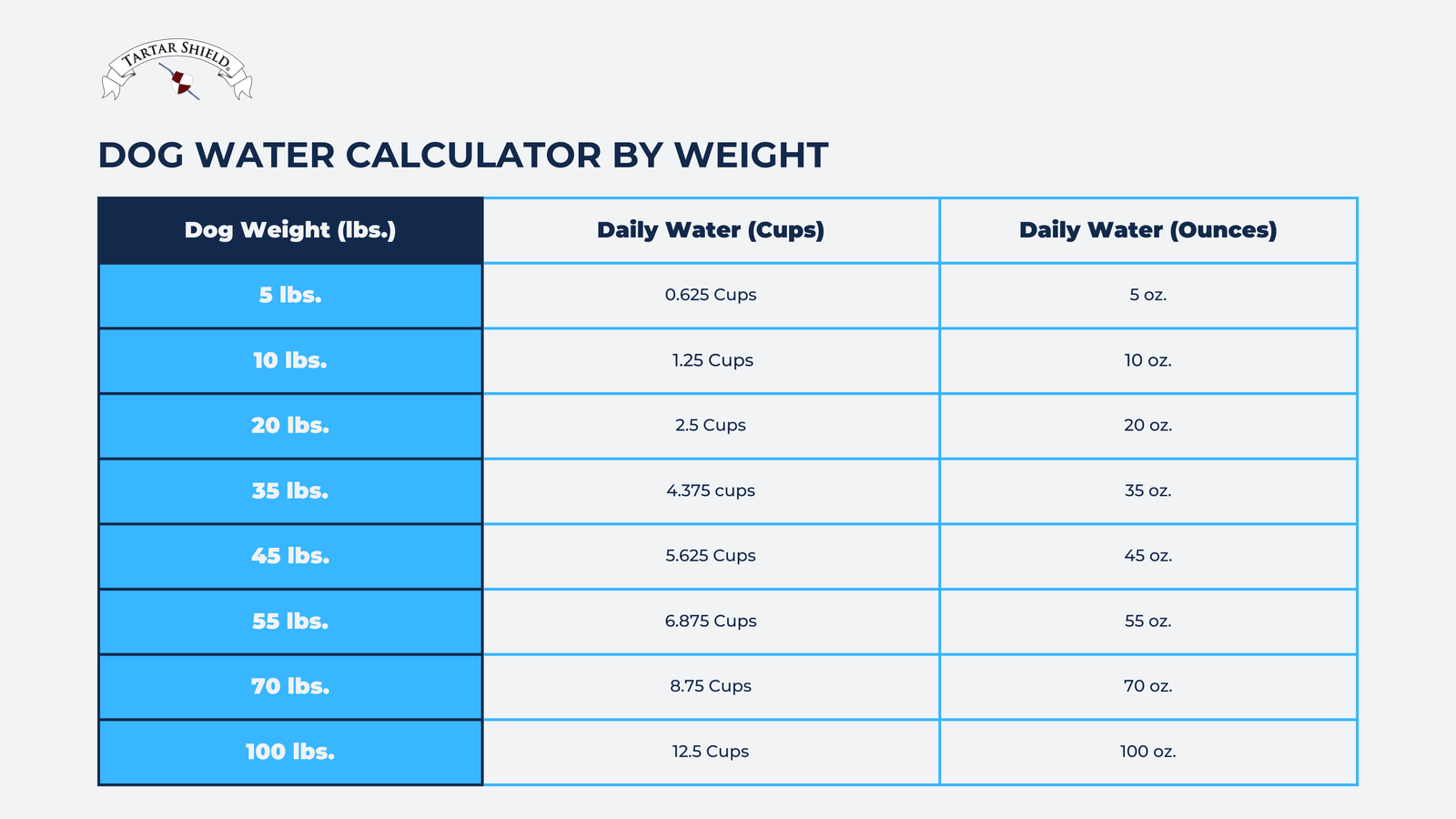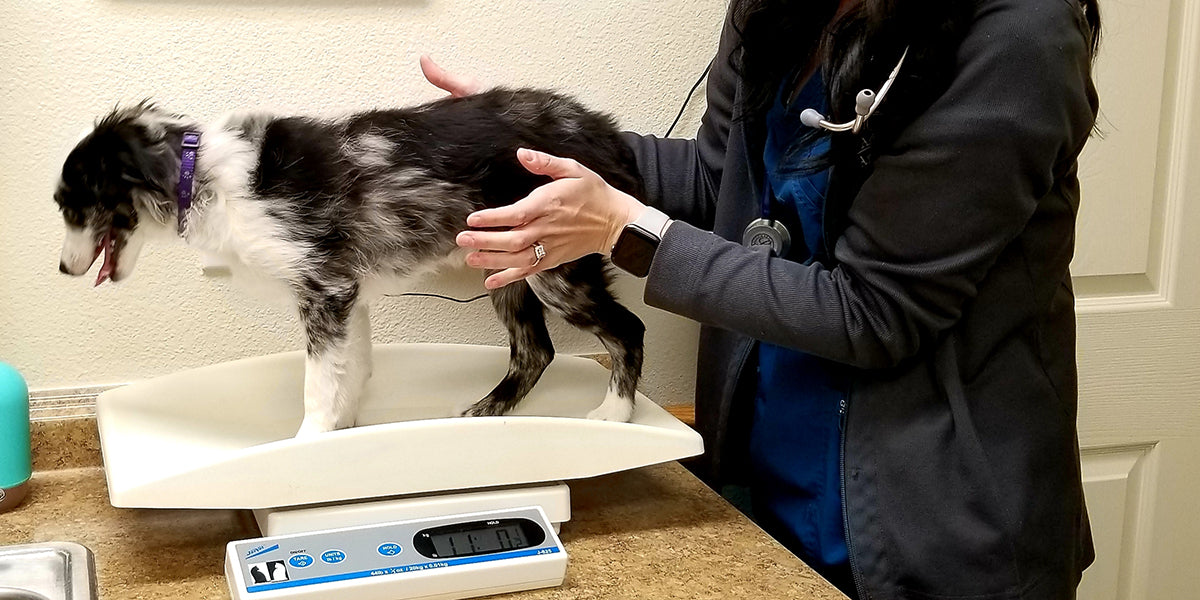
Your dog’s weight should be determined based on its breed and size. Aim for a weight within your specific dog’s healthy range.
Maintaining the proper weight for your dog is crucial for their overall health and wellbeing. Like humans, carrying excess pounds can lead to various health issues in dogs, including joint problems, heart disease, and a higher risk of certain illnesses.
Conversely, being underweight can also indicate underlying health issues or insufficient nutrition. So, how can you determine the ideal weight for your furry friend? It primarily depends on their breed and size. While there’s no one-size-fits-all answer, understanding the factors influencing your dog’s weight can help you determine the correct range. We’ll explore how to assess your dog’s weight, the risks associated with obesity and underweight, and crucial tips to help you maintain your weight at a healthy level.

Factors Affecting Ideal Dog Weight
Maintaining an ideal weight for your dog depends on various factors, including breed, age, activity level, and overall health. It is essential to consider these factors to ensure your furry friend stays healthy and happy.
Factors Affecting Ideal Dog Weight
Understanding the ideal weight for your furry friend is crucial for maintaining your dog’s health and wellbeing. Several factors influence what is considered a healthy weight for dogs. These factors include breed and size, age and stage of life, activity level, and exercise. By considering these factors, you can ensure your dog stays fit and healthy for years.
Breed And Size
It’s no surprise that dog breeds come in various shapes and sizes. The breed and size of your dog play a significant role in determining their ideal weight. Smaller breeds, like Chihuahuas or Yorkshire Terriers, naturally weigh less than larger breeds, like Great Danes or Mastiffs. Understanding your dog’s breed and size is essential to managing their weight effectively.
Age And Stage Of Life
Just like humans, dogs go through different stages of life, each with its unique nutritional requirements. Puppies, for instance, require more calories to support their rapid growth and development. As they reach adulthood, their energy needs may decrease, and maintaining an optimal weight becomes crucial to prevent obesity-related health issues. Similarly, senior dogs may experience a decline in metabolism, and their weight management should be closely monitored.
Activity Level And Exercise
An active lifestyle is vital for your dog’s overall health and weight management. The amount of exercise your dog needs will depend on their activity level and energy requirements. Dogs with high energy levels, such as Border Collies or Labrador Retrievers, may require more exercise to burn excess calories. On the other hand, less active breeds, such as bulldogs or basset hounds, may require less physical activity. Regular exercise helps control weight and promotes overall fitness and mental wellbeing.
In conclusion, the ideal weight for your dog is affected by several factors, including breed and size, age and stage of life, activity level, and exercise. By understanding these factors, you can make informed choices to ensure your furry friend maintains a healthy weight. Remember that consulting with your veterinarian can provide valuable guidance on your dog’s needs. Keep your dog’s weight in check, and they will thank you for a long, active, and happy life!
Determining Your Dog’s Ideal Weight
Determining your dog’s ideal weight is crucial for their health and wellbeing. Knowing how heavy your dog should be can help you provide proper nutrition and prevent obesity-related health issues.
Consulting A Veterinarian
If you are unsure about your dog’s ideal weight, it is always recommended to consult a veterinarian. A veterinarian can provide expert advice and guidance about your dog’s breed, age, and activity level. They will thoroughly examine and consider various factors before determining the ideal weight for your furry friend.
Using Body Condition Scoring
Body condition scoring is another helpful tool for determining your dog’s ideal weight. This method assesses your dog’s overall body condition based on visual and tactile indicators. A veterinarian or trained professional will evaluate factors such as fat covering the ribs and spine, waistline visibility, and abdominal tuck.
A body condition score scale, ranging from 1 to 9, is often used, with 1 indicating emaciation and nine indicating obesity. The optimal score usually falls around 4 to 5, where the ribs and spine are easily felt and only a thin layer of fat is present.
It’s important to note that body condition scoring is more accurate than relying solely on weight measurements, as it considers the proportion of fat and muscle mass in your dog’s body.
Monitoring Food Intake And Feeding Patterns
Properly monitoring your dog’s food intake and feeding patterns is crucial to maintaining their ideal weight. Serving appropriately-sized portions and monitoring calorie intake can prevent overeating and weight gain. Your veterinarian can provide tailored recommendations on your dog’s appropriate type and amount of food.
Additionally, establish a consistent feeding schedule and avoid excessive treats or table scraps that can contribute to weight gain. Regularly evaluate your dog’s body condition and adjust their food intake. Remember that each dog is unique, and their nutritional needs may vary.
Maintaining Your Dog’s Weight
ensureensure ensureensureEnsure that maintaining your dog’s weight is crucial for their overall health. Knowing how heavy your dog should be is essential to ensure they are at optimal weight and can prevent obesity-related health issues.
Maintaining Your Dog's Weight
Proper Nutrition And Portion Control
Proper nutrition is vital to maintaining your dog’s weight. Feeding them a balanced diet rich in essential nutrients is essential. Ensure that high-quality dog food suitable for their breed, age, and size is provided. Read the labels carefully and choose a food that lists a high-quality source of protein as the first ingredient. Avoid foods that contain fillers or artificial additives.
Portion control is equally important as proper nutrition. It’s crucial to measure the amount of food you’re feeding your dog and avoid overfeeding. Follow the recommended guidelines on the dog food packaging, or consult your veterinarian for specific portion sizes. Remember that each dog is unique; factors like age, activity level, and metabolism can affect their calorie needs. Adjust the portion sizes accordingly to maintain a healthy weight.
Regular Exercise And Physical Activity
Regular exercise and physical activity are essential for a healthy weight in dogs. Aim to provide at least 30 minutes to an hour of exercise daily, depending on your dog’s size and breed. They engage in activities such as brisk walks, jogging, fetching games, or swimming. Exercise helps burn calories, control weight, and promote overall fitness and mental stimulation.
Consider your dog’s age and physical condition when planning their exercise routine. Puppies and senior dogs may require shorter, more frequent exercise sessions. Consult your veterinarian for specific exercise recommendations to ensure you provide appropriate activities for your dog’s needs.
Regular Veterinary Check-ups
Regular veterinary check-ups are vital for maintaining your dog’s weight and overall health. Schedule routine visits with your veterinarian to monitor your dog’s weight and discuss any concerns you may have. Your vet can help assess your dog’s body condition score, guide ideal weight goals, and recommend necessary dietary adjustments.
During check-ups, your veterinarian may also conduct additional tests or screenings to identify any underlying medical conditions that could contribute to weight gain or loss. Early detection and intervention can help prevent further complications and keep your dog on track to a healthy weight.


Frequently Asked Questions On How Heavy Should Your Dog Be?
How Much Should My Dog Weigh?
The ideal weight for a dog depends on their breed, age, and size. Generally, a healthy weight range can be determined by your veterinarian. Maintaining a proper weight is essential to prevent health issues like obesity or joint problems.
How Can I Tell If My Dog Is Overweight?
You can check if your dog is overweight by feeling their ribs. If you can’t feel them quickly, your dog may be heavy. Other signs include a lack of waist or an inability to see or feel their bones. Consult with your vet to determine the best weight management plan.
How Can I Help My Overweight Dog Lose Weight?
To help your overweight dog lose weight, ensure a balanced diet with appropriate portion sizes. Increase their exercise gradually, incorporating activities like walks and playtime. Consult your veterinarian for a tailored weight-loss plan, as crash diets can be harmful to a dog’s health.
Conclusion
Understanding their ideal weight is crucial to ensuring optimal health and wellbeing for your furry friend. By appropriately managing their weight, you can prevent a host of health issues for your dog. Regularly monitoring their diet, exercise routine, and overall body condition will help them maintain their weight within a healthy range.
Remember, each breed has specific weight guidelines, so consult with your veterinarian to determine the ideal weight for your beloved pet. Keep your dog’s weight in check, and you’ll pave the way for a long and happy life together.
